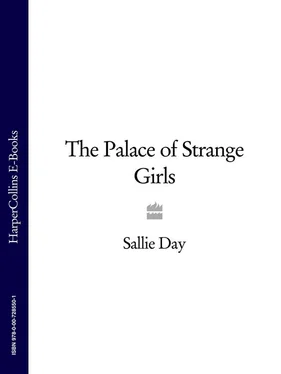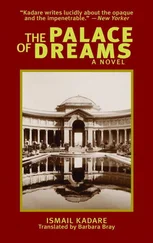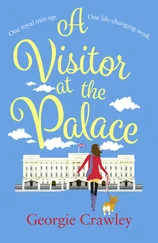‘But that’s just it. They don’t kick up. Management can do anything it likes, and that bunch will roll over and ask for more. Seven quid nine and ten a week and they aren’t complaining. It’s a fortune to them.’
‘Aye, and how long does it last when landlords are charging them the earth just for a roof over their heads? And any money they do manage to save is sent back abroad to feed their families. They’re no different from you and me – they’re trying to do their best for their families just like us.’
Jack has first-hand experience of the sort of squalor that immigrants have to cope with. There’s so much prejudice locally that the only accommodation they can find is in houses that should have been pulled down years ago in the worst part of town. Last month there’d been a mix-up with the wages and Jack had ended up going round to drop off Ahmed Khan’s overtime money. He’d found Ahmed along with a dozen fellow Pakistanis sharing the same house. No furniture – just mattresses on the floor of every room. No curtains, just blankets flapping with the draught. They’d had a bunch of local lads round a couple of nights before shouting abuse and smashing the windows. The landlord was charging them twenty-five bob each a week. Despite this he refused to get the windows repaired. Claimed it was a waste of time – they’d just get broken again. No heating whatsoever and the back gate had been kicked in. Jack has read about the West Indian riots in London a year ago and he reckons that Lancashire’s Asian community won’t be far behind.
‘I blame the government,’ Harry says. ‘They’re saying there’ll be another election before the end of the year. The Tories have been a bloody waste of time. They behave as if we still had an empire. It’s not two minutes since they were showing bloody Gandhi around the Lancashire mill towns. They should have kicked his chocolate arse and sent him home. No sooner have we given these darkies their independence than the buggers are getting on the nearest banana boat and coming here. And it’s not just these wogs turning up on our doorstep; there are thousands of them brown bastards back in India flooding our markets with cheap, coarse staple cotton.’
Jack sighs with frustration. Lancashire cotton has been threatened by foreign competition before, but it has always risen to the challenge. The industry has invented new fabrics like Fabriflex – a combed cotton weave bonded to a plastic backing – and special luxury finishes on cotton shoe linings that make them feel like finest kid. There’s even talk now of producing fake fur fabric, if the Cotton Board can sell the idea to the clothing industry. Once the car trade had been sold the idea of replacing leather seats with cotton-backed plastic Leathercloth they couldn’t get enough of it. Leathercloth is wipe-clean, lasts a good deal longer and resists the stains that ruin leather. It’s a nuisance that Leathercloth smells of plastic rather than rich leather, but appearancewise there’s not a lot to choose between them. With the invention of all these new British fabrics foreign competition really shouldn’t be the worry that it is. Jack turns to Harry and says, ‘Give it a rest, Harry. I don’t want to spend my holiday arguing the toss with you about work.’
Beth has been sitting cross-legged at her mother’s feet during this exchange of views. She turns now and taps her mother’s knee. ‘What’s a wog?’ she asks in a stage whisper. Ruth appears not to hear. She is apparently immersed in her Woman’s Own .
‘Mummy! What’s a wog?’
‘What?’
‘What’s a wog? Is it like a golliwog? Like one of those golliwogs on the jam jar?’
‘Shut up and play quietly.’
‘But what is it? What does it mean?’
‘It’s what ignorant people call other people with different-coloured skin. It’s very rude. Don’t ever let me hear you using that word.’
‘But Mr Sykes does. Mr Sykes says there are loads of wogs at the mill.’
‘Do you want a slap?’
Beth shakes her head and moves out of range of her mother’s hand.
Jack returns to the relative safety of his newspaper and Harry, keen to make amends, says, ‘Aye, well. How are your lasses getting on, Jack?’ Sykes’s eye lingers overlong on the figure of Helen sitting in a deckchair at the other side of her father, her head still buried in the NME . ‘Would they like an ice cream?’
‘Well…’ Jack hesitates; he is anxious not to reject this peace offering but aware of Ruth’s silent fury.
‘Come on, Jack. They’re on holiday. Irene! Here’s a couple of bob. Go and get the kids some ice cream.’
‘All by myself?’ Irene objects.
Jack nudges Helen. ‘Give Mrs Sykes a hand with the ices. Small ones, mind.’
ICE CREAM
Everyone loves ice cream, especially on a hot day. Where did you buy your ice cream? From a shop or from an ice-cream van parked on the sands? Score 5 points for a big ice cream!
‘Haven’t I seen you working at the dress shop on Penny Street?’ Irene asks when they’re out of earshot. ‘Do you like?’
‘Oh, yes. I love it. I just work Saturdays, but Blanche has offered me full time over the summer.’
‘I thought you were still at school.’
‘I am,’ Helen admits, ‘but I want to leave this summer.’
‘I’ll bet that hasn’t gone down too well with your mother.’
‘No,’ agrees Helen. ‘She goes mad every time I mention it.’
Helen looks closely at her confidante. Mrs Sykes has a look of Debbie Reynolds. Her hair is newly bleached and permed. A professional perm – nothing like the frizzy Toni Home Perm that her mother uses every few months. Mrs Sykes is the last word in style and not a hair out of place, despite the breeze.
‘I got this dress from Kendal’s in Manchester and I bought the hat at the same time. What do you think?’ Mrs Sykes raises a hand to the white feathers that curl round the crown of her head.
‘It’s a lovely dress,’ breathes Helen, ‘and the hat looks nice against your hair.’
Helen knows that the dress alone will have cost the best part of ten guineas. It’s pink with three-quarter-length sleeves and white turn-back cuffs.
‘Thank you.’ Mrs Sykes smiles. ‘That’s quite a compliment from someone who works for Blanche.’
It is Helen’s turn to be flattered. ‘Oh, I’m just the Saturday girl but you’d be surprised how many customers we get in to buy last-minute dresses for their holidays. And lots of them ask me what I think. We’ve barely a rail of summer dresses left. Blanche has had to order more from the suppliers. She’ll have been busy with all the work pressing and pricing up…’
Helen’s voice trails off in disappointment. It is not merely the money she could be earning; she misses the excitement of all the new dresses and the crush of customers all wanting her attention. Helen is treated like an adult from the moment she starts work until the shop shuts and she reluctantly returns home.
‘You must be worth your weight in gold to Blanche.’ Helen smiles and a blush of pleasure advances up her cheeks. ‘Do you get paid a bonus for all the dresses you sell?’ Irene asks.
It is common to discuss money and terribly impolite to ask about anything as personal as wages. Helen would love to tell Mrs Sykes that she gets five per cent on every dress she sells but years of conditioning prevent her.
Helen has a natural aptitude for sales. It is to Helen that Blanche turns for an ‘up-to-date opinion’ when a customer can’t make up her mind between a shot satin decolletage and a backless velvet cocktail dress. It is an unwritten rule that Helen recommends the more expensive gown, thereby maximising Blanche’s profit margin and Helen’s percentage. There has only ever been one exception to the rule. Mrs Taylor came in shortly after Helen started working in the shop. She was in search of an outfit for her daughter’s wedding and was very taken with a bright-blue suit that drew attention to her varicose veins and drained her face of colour. Helen managed to persuade Mrs Taylor into a cheaper floral dress in peach with matching jacket. It was only when she was ringing up the sale that she noticed Blanche looking daggers from the entrance to the dressing rooms. A sharp exchange between owner and assistant followed Mrs Taylor’s triumphant exit from the shop. Despite Helen’s hopes that the customer, content with her purchase, might return to the shop on future occasions Blanche was adamant, ‘That beggar won’t come in again this side of Preston Guild. Eileen Taylor’s a cheapskate. She buys mail order.’
Читать дальше












